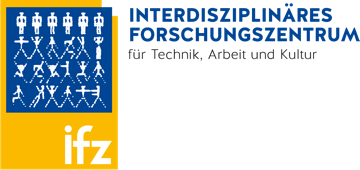Karatayev, Marat |Kazakhstan

Marat Karatayev is a Newton Al-Farabi Energy Research Fellow at the Energy Technology Research Institute, University of Nottingham, UK. He is also a Research Associate with the Kazakh Institute for Economic Research and UNESCO Department on Sustainable Development at Al-Farabi Kazakh National University. With PhD in Urban, Energy and Environmental Planning, his research interests include energy security, resource use, energy economics, post-carbon transition, clean fuel and energy technologies, climate change, Energy-Water-Food Nexus, scenario generation tools: LEAP (Long-range Energy Alternatives Planning), WEAP (Water Evaluation Planning System), Foreseer (Land-Water-Energy-Food). His contribution to recent grants include Multidimensional impact of the low carbon European strategy on energy security, and socioeconomic dimension up to 2050 perspective (MILESECURE 2050, €6.2M, EC funding, 2012-2016); Post‐Carbon Cities of Tomorrow 2050 (POCACITO, €4.5M, EC funding, 2014-2017); Climate change impacts on land degradation and society in Kazakhstan (INSPIRE, £80K, , 2010-2013); The potential application of renewable energy for rural energy services and electrification in Kazakhstan (£125K, Newton Fund, 2014-2016).
Project at IAS-STS: The past, present and future impact of carbon dioxide emissions, energy use, and electric power consumption on economic growth of China, India, Indonesia, Japan and South Korea
My research explores the impact of carbon dioxide emissions, energy use, and electric power consumption on economic growth of China, India, Indonesia, Japan and South Korea. The research examines the relationship between energy on economic growth of these five Asian countries, and discusses how this could be used to reduce global warming yet maintain a strong financial economy. Additionally, the research investigates for creating a consensus within the empirical literature of a multivariate and multiple country analysis in a solitary overarching study. Furthermore, the work questions the extent carbon dioxide emissions, energy use and electric power consumption impact on economic growth for China, India, Indonesia, Japan and South Korea. Consequently, it also explores the extent to which these variables differ between the selected developed and developing countries.
Contact: Marat [punkt] Karatayev
 nottingham [punkt] ac [punkt] uk
nottingham [punkt] ac [punkt] uk
Selected Publications
Rivotti, P., Karatayev, M., Mourão, Z. S., Shah, N., Clarke, M. L., & Konadu, D. D. (2019). Impact of future energy policy on water resources in Kazakhstan. Energy Strategy Reviews, 24, 261-267.
Karatayev M., Movkebayeva G., Bimagambetova Zh. (2018). Increasing utilisation of renewable energy sources: Comparative analysis of scenarios until 2050. In: Energy security policy challenges and solutions for resource efficiency. Principal Editors: Mouraviev N., Koulouri A. London: Springer, 278 pp.
Koshim, A., Karatayev, M., Clarke, M. L., & Nock, W. (2018). Spatial assessment of the distribution and potential of bioenergy resources in Kazakhstan. Advances in Geosciences, 45, 217-225.
Karatayev, M., Kapsalyamova, Z., Spankulova, L., Skakova, A., Movkebayeva, G., & Kongyrbay, A. (2017). Priorities and challenges for a sustainable management of water resources in Kazakhstan. Sustainability of Water Quality and Ecology, 9, 115-135.
Karatayev, M., Hall, S., Kalyuzhnova, Y., & Clarke, M. L. (2016). Renewable energy technology uptake in Kazakhstan: Policy drivers and barriers in a transitional economy. Renewable and Sustainable Energy Reviews, 66, 120-136.
Karatayev, M., & Clarke, M. L. (2016). A review of current energy systems and green energy potential in Kazakhstan. Renewable and Sustainable Energy Reviews, 55, 491-504.
